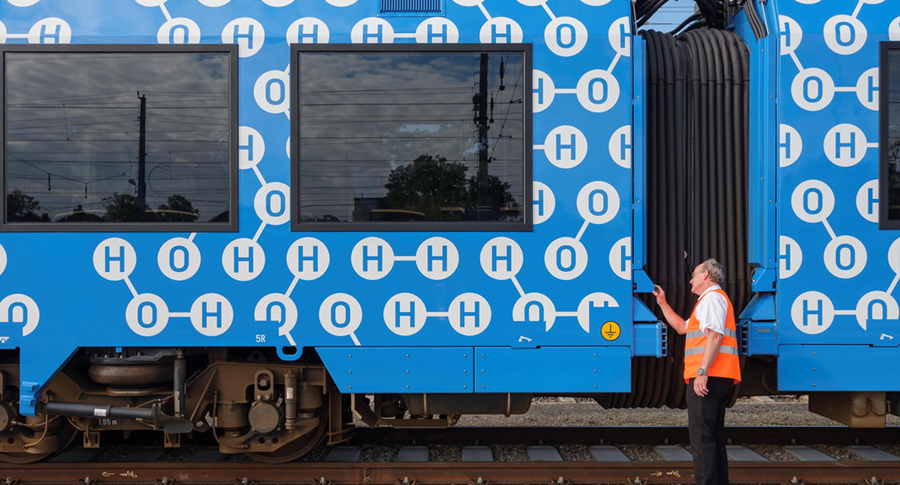
On the Canfranc line, the first hydrogen-powered train made its debut, making a significant contribution to sustainable and green transportation.
As part of the breakthrough effort, CAF is leading a consortium along with Renfe, Adif, DLR, Toyota, CNH2, IP, and Stemmann-Technik.
Raquel Sanchez, the Transport Minister, applauded the project’s advancement, highlighting its utilization of “hydrogen cells and batteries for innovative and sustainable mobility.” The launch of this hydrogen train underpins the central government’s pledge to cultivate a transportation system equipped to tackle current and future challenges.
It is believed that this train serves as the hydrogen prototype for the FCH2Rail project, with more updates expected as milestones are reached.
Renfe, Spain’s national railway company, confirmed that the demonstrator train has entered the testing phase on the Railway Network of General Interest, subsequent to receiving approval from Adif, the infrastructure management agency. The train, initially a Renfe commuter unit, was converted by CAF into a dual-mode train powered by a hydrogen fuel cell. In its test operations, the train operated in electric mode on electrified sections and switched to hybrid mode, blending hydrogen cells and batteries on non-electrified sections.
Following the successful completion of static tests at the CAF Zaragoza plant, the consortium is now advancing the project to an external track. This underscores their commitment to the initiative. The goal is to assess the new dual-mode hybrid propulsion solution’s competitiveness against diesel traction typically used on many railway lines.
The FCH2Rail project, with a total budget of 14 million euros, receives substantial funding from the Clean Hydrogen Partnership. This is a European Commission agency advocating hydrogen development. Iberdrola, a prominent Spanish energy company, also joins as a green hydrogen supplier, contributing to the project’s overall success.
Hydrogen-powered trains mark a vital step in sustainable transportation. These trains present a clean and efficient substitute for conventional diesel-powered engines by exploiting hydrogen cells and batteries. Hydrogen utilization curbs harmful emissions and encourages energy diversification, promoting energy independence and security.
Furthermore, hydrogen-powered trains could revolutionize railway systems globally. They promise quiet and comfortable journeys, thereby reducing noise pollution along railway corridors. Additionally, the ability to operate on non-electrified sections broadens rail connectivity to previously underprivileged areas, stimulating economic growth and accessibility.
The Canfranc line test exemplifies the collective efforts of various stakeholders, including government agencies, industry leaders, and research institutions. It highlights Spain’s dedication to spearheading innovation in sustainable transportation and positioning itself as a global leader in hydrogen technology.
As the hydrogen train project continues to progress and undergo additional testing, it provides a glimpse into the future of railway transportation. Hydrogen-powered trains can revolutionize mobility by delivering efficient, eco-friendly, and economically feasible solutions.
Read the most up to date Fuel Cell and Hydrogen Industry news at FuelCellsWorks




